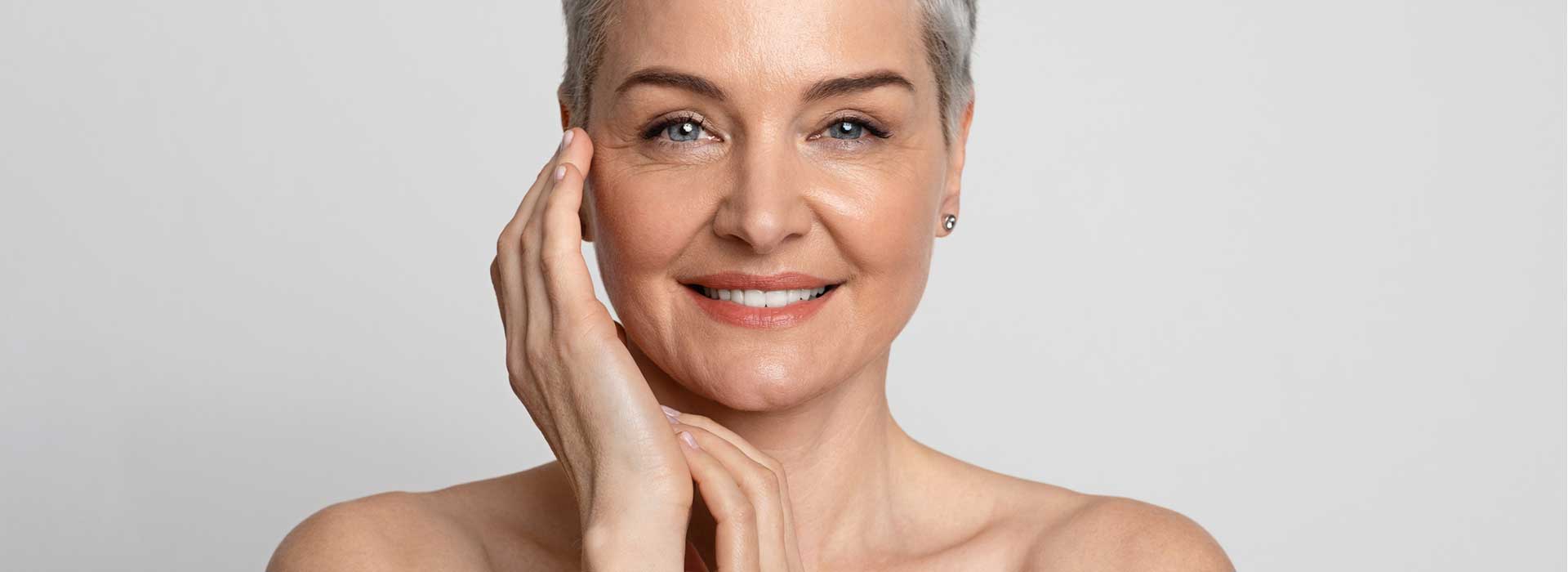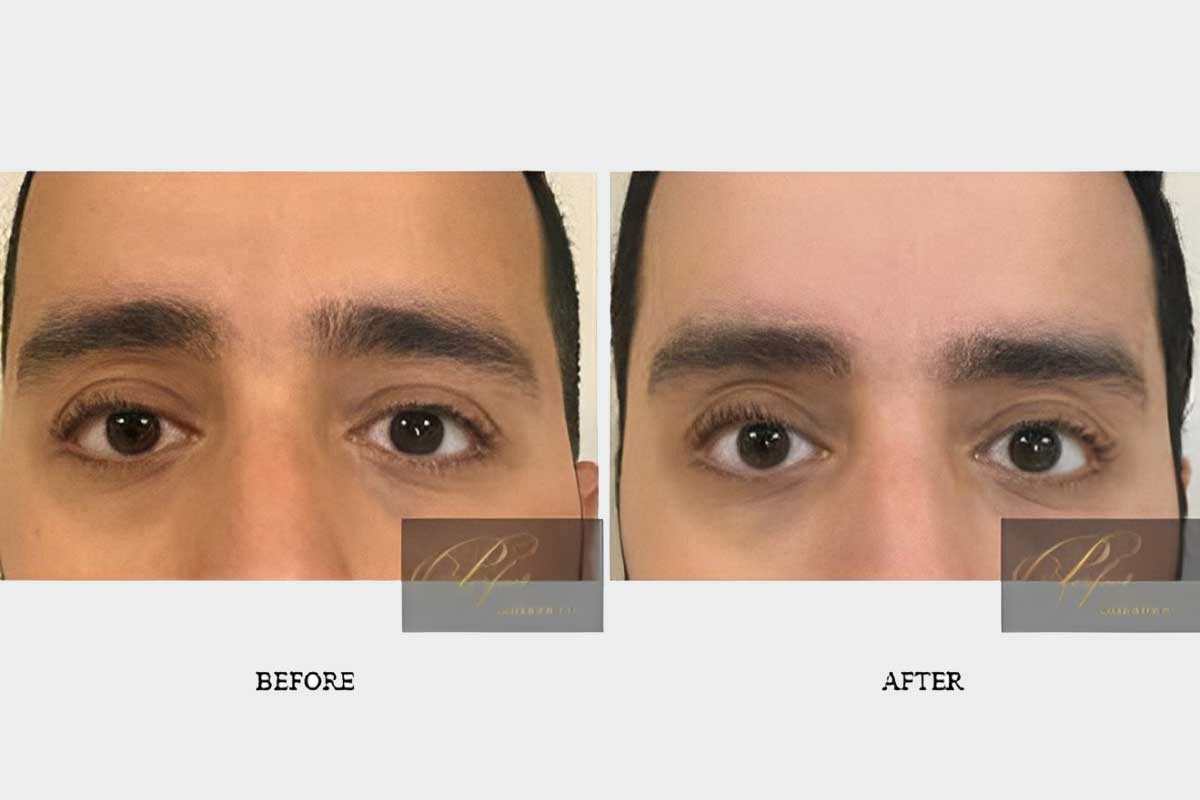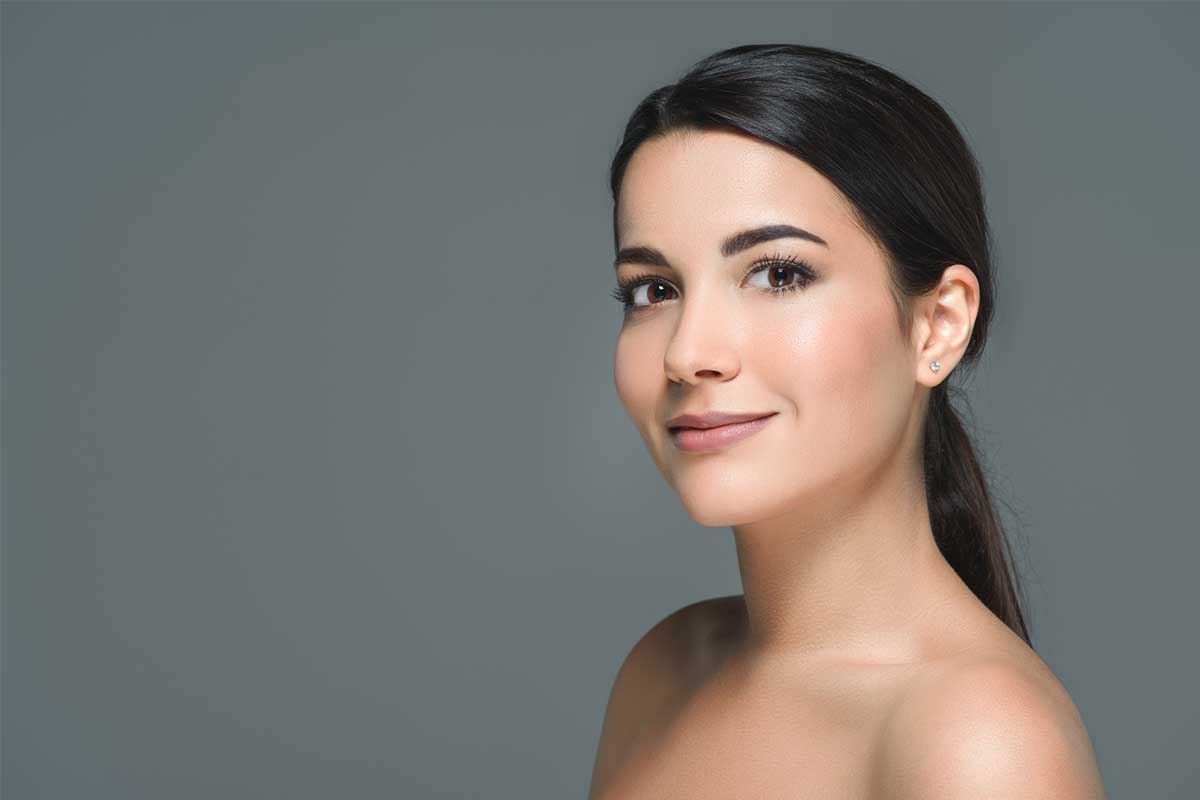My Best Advice on Anti-Aging Skincare
For those of you who want to preserve your skin, prevent further sun damage, or invest in procedures (botulinum injections, fillers, lasers, peels), it’s smart to protect your skin (and your results) with the right products. Although not an instant improvement (usually individuals notice a difference in about 90 days), a smart line-up is essential to anyone interested in maintaining or improving the health and appearance of their skin. In fact, almost everyone over the age of 20 can benefit from education and direction towards clinically proven efficacious products.
Cosmeceuticals have been of interest to me since residency. I continue to be the go-to gal for colleagues sending patients interested in skincare, as I have made it my business to scrutinize product science in deciding whether it was bonafide, or just another “snake oil”. I have developed a reputation among product reps in the field, as they either love me or hate me. After twenty years of experience, my conclusion is that the right skin care products can certainly make a difference in your appearance. It’s my job to help you navigate which products will help you to look your very best.
In the world of skin lotions, potions, supplements, there are three main classes:
- Prescriptions– a health care provider’s written authorization for a patient to purchase a prescription drug from a pharmacist or other authorized dispensing agent.
- Cosmetics– products used to cleanse and beautify the skin (what you can buy over-the-counter at Walgreens or Nordstrom).
- Cosmeceuticals– cosmetics with “drug-like” effects. This third category is not formally recognized by the FDA, however. Many of these products require supervision under the guidance of a medical license, as they are much more potent(effective) than what you can buy over the counter. These are typically found in physician’s offices and some Medispas. Products in this category are typically categorized as anti-aging skin care products.
The Perfect Skin Essential Youth Maintenance Program
- Sunscreen:If you use only one anti-aging skin care product for your skin, it should be a broad-spectrum, daily sunscreen. Our picks:
Sunscreen Updates

Well, May is skin Cancer Awareness Month and joining us to talk about the importance of sunscreen is dermatologist Doctor Susan Schroeder from perfect skin dermatology. Thank you so much for joining us today. You know we were talking a little bit beforehand it. We kind of get, you know, our audience is probably pretty savvy knowing that at this point we need to protect ourselves against the sun. We’ve heard enough about it, but especially here in Colorado, right? Okay, well the number one thing is you, you, absolutely need it, there’s no, no, ifs, ands, or buts about that you know it is we sunscreen every time that there’s actually daylight out, you’re actually getting UV exposure. So, you think 5 minutes here 5 minutes there, there are no free calories in some in sun exposure, every single thing counting as a accumulative. Okay, but I know vitamin D is so good for our bodies though, yes. Are we still going to get that if we’re using that sunscreen, you know, like oh, Just a little bit of vitamin D first, you know Before I put my sunscreen on. You know, and I have so many patients that says, you know I, I’m not going to get vitamin D or I’m low in vitamin D and there is a synthesis in the skin that takes place where it converts that vitamin D to the state that we needed it and but we’re finding that studies show that if you use sunscreen, you’re not negating that at all. You’re not, you’re not causing that not to happen, but there are a couple things I wanted to say, you know people love being in the sun because I think it’s just pretty well accepted that you look healthier with tan, and you look like you’re in shape and feel better, feels good to lay in the sun. It even has some anti-inflammatory properties such as it’ll help clear acne and psoriasis. I shouldn’t be saying these things, but you know, there’s some things that are, we think are, are, good about it, but really, the negative points the sun exposure truly outweigh the bad because your risk of skin cancer is significantly increased as well as premature ageing. Right, and we don’t want to prematurely age. We don’t want skin cancer. That’s why we’re talking about it this month because it’s skin cancer awareness month. But you know, I grew up in Wisconsin, and I feel like the sun is a lot heavier here in Colorado. Do we have to worry about it, you know, being higher up in the mountains? It it absolutely is more difficult, we are I don’t know if you know this, but we are Number 2 and incidents for skin cancer, out of all of the US states. Hawaii is the only one vote ahead of us. That really surprises me, I thought Florida and California would be ahead of us, Yeah, but it’s because of our very sunny days, about 300 a year, and then our outdoor lifestyle and also the altitude and the higher up you are, the more UV exposure you’re actually going to receive. I think there’s some slides that may be circling through it, show that. Yeah, Oh yeah, they’re going to be popping up here, but so living in Colorado Springs a little over a mile, you’re going about 25 percent more UV exposure than you would if you were living at sea level Breckenridge, Vail, about 50 percent and if you’re climbing fourteeners, you’re getting 75 percent more exposure than you would at sea level. Oh my goodness. I know. Alright, scary. Right so what do you recommend to your patients, because I’m sure they want to get out there. They want to enjoy the sun. The fourteeners and all that stuff, but they should be worried about sunscreen as well, because, Right, they’re not all created equal, right, exactly and you know that that’s something that’s actually changed a little bit over the years. Traditional studies show that we should be using a 30 SPF sunscreen in all its exposed areas, and those studies that show that that was efficacious used a massive sunscreen that were so thick that nobody in real life would really do that. So as dermatologists we are recommending 50 at this point to use on a daily basis. Now if you’re like you or I we’re, we’re in the office all day and we’re just, you know, walking to the parking lot or going out to lunch in our breaks. Putting it on once, it’s fine, but if you’re outside a lot, if you’re hiking, if you’re skiing, if you’re doing things outdoors, you need to reapply every two hours because the sun does break it down. Okay, all right. Make sure to reapply. I always knew when you go in the water you need to reapply but you need to reapply, yes, even if you’re just, you know, just throughout the day because it’s breaking it down, right, We don’t have time to touch on wavelengths. Okay, so we’ll have to do a Facebook live unless do you, can you do it really quick, Yeah, I can. I wanted to talk about, I want to talk about, I want to talk about physical and chemical sunscreens because that’s a big deal right now in the in the News, Okay, there are some chemical sunscreens that are causing concern that they might be causing harm to. The coral reef and there are some studies that show that it shows up in body fluids, tissues of people and, and, it’s, it’s, alarming. We dealt with; the jury is really out on that. We don’t know that yet. It’s usually oxybenzone, but there are four different chemicals that. They’re looking at differences between two sunscreens are chemicals they absorb into your skin and then they neutralise the harmful effects of the rays, whereas physical sunscreens such as zinc oxide and titanium dioxide, they actually sit on the skin surface and they cause the rays to bounce off and so to be safe, yeah, it’s a better thing to use. That’s what the surface have, with the white nose. So well, to learn more about perfect skin dermatology, from our, at Doctor Susan Schroeder go online to perfectskinderm.com and she is always willing to explain this. That’s what I love about you. You know someone comes into the office and they have questions, you were always willing to take the time to talk to them. Thank you, So, thank you for coming on. Yeah, it is fun, alright, well now. Thank you. It’s fun.
Nia 24 UVA/UVB sunscreen or Nia 24 100% Mineral Sunscreen: not only protects your skin, but it contains pro-niacinamide, which strengthens the skin barrier, builds collagen, decreases inflammation, and lightens pigmentation. Why not use something that not only protects your skin but reverses photo-damage? A perfect pick to combat retinoid(ol) irritation, as it directly counteracts these inflammatory side effects.
Colorescience Sunforgettable: a mineral powder sunscreen that works well for those who are active and perspiring (avoid sunscreen lotions as they sting eyes), or acne-prone (doesn’t clog pores). Comes with a tint, so it doesn’t look paste-y on your skin, or in a bronze tint. This product has a retractable brush as part of the mechanism and is great to keep in your purse or golf bag for touch-ups.
Skin Medical Total Defense and Repair: a broad-spectrum sunscreen that also incorporates infra-red (heat) protection. Recent studies show that melasma and other abnormal pigment production can be triggered by, not only UVA and UVB rays, but also by visible sunlight and infra-red waves. This is your safest bet if you are pigment-prone.
Colorescience Even-up: This is the one I personally use. It’s replaced Laura Mercier, Bobbi Brown, and every other foundation in my make-up drawer. Even-up is Colorescience’s latest, greatest answer to broad-spectrum sunscreen (including infra-red protection), mineral fusion (improves skin texture), color coverage (but not too much), and gentle lighteners to give you the most flawless finish. This is the answer for those individuals who want a fresh, not overdone appearance, and for those of us over 50, where too much makeup starts to make us look a whole lot older than we are. At $120, it is not cheap, but once you try it, you’ll never go back. This product is anti-aging skin care at its best, addressing multiple aspects of an aging complexion.
- Antioxidants: offer an added degree of sun protection, repair DNA breakage that can lead to skin cancer, increase collagen production, and lighten skin discoloration caused by sun. Your skin color looks more even, and fine wrinkles are diminished. This product is also a must as preventative care for individuals with a history or at risk for skin cancers.

Our Picks:
IS Clinical ProHeal Serum: a potent vitamin C formulation with additional antioxidant olive leaf extract, best suited for dry skin types.
IS Clinical Super Serum: contains vitamin C and anti-aging pentapeptides, better for oily skin or for use during the summer months.
Skin Medica TNS Essential Serum: a potent blend of antioxidants packaged together with human-derived growth factor.
- Growth Factors: cellular components that are in abundance in early youth and slowly diminish over time. These direct the cell to act “younger”, causing collagen production, resiliency, and better healing. The results are fewer wrinkles and more luminous skin. I prefer the human-derived variety, as these result in the ultimate balance of many distinct growth factors, emulating the balance we all had as infants. I liken this difference to that between human breast milk and formula (Enfamil or Similac): as much as companies try to reproduce the nutrients in mother’s milk, they can never quite replicate it. It’s the same with the human-derived vs. synthetic growth factors.
Our Picks:
Skin Medica TNS Essential Serum: a two-in-one product, containing both pure human growth factors and a potent blend of antioxidants.
Skin Medica TNS Recovery Complex: a mix of pure human growth factors alone. Best for acne-prone skin and those who prefer a serum antioxidant separately instead of in a combined product.
- Retinoids/ols: Increase collagen production, normalize skin keratinization(maturation), and reduce abnormal pigment. Important as part of any anti-skin cancer and skin care regimen.Clinically proven to normalize skin and to reverse the signs of aging by building collagen. Retinoids are only available by prescription. Retinols cause less irritation than and, over time, produce similar effects to more potent retinoids.
Our picks:
Retinoids: Refissa Cream 0.05%. This formulation is more emollient, and thereby less-drying, than the typical Tretinoin(Retin-A ) used for acne-prone skin.
Retinols: Skin Medica Retinol Complex 0.5%, 1.0%. I’ve found these to be the most effective retinols on the market. Typically less-expensive (and less-irritating) than prescription Retinoids.
I could write for hours about efficacious, anti-aging skin care products, and our office is knowledgeable and always available to answer your questions and help you navigate. Call us, email us, tell us what you need! We always offer free shipping our products.



